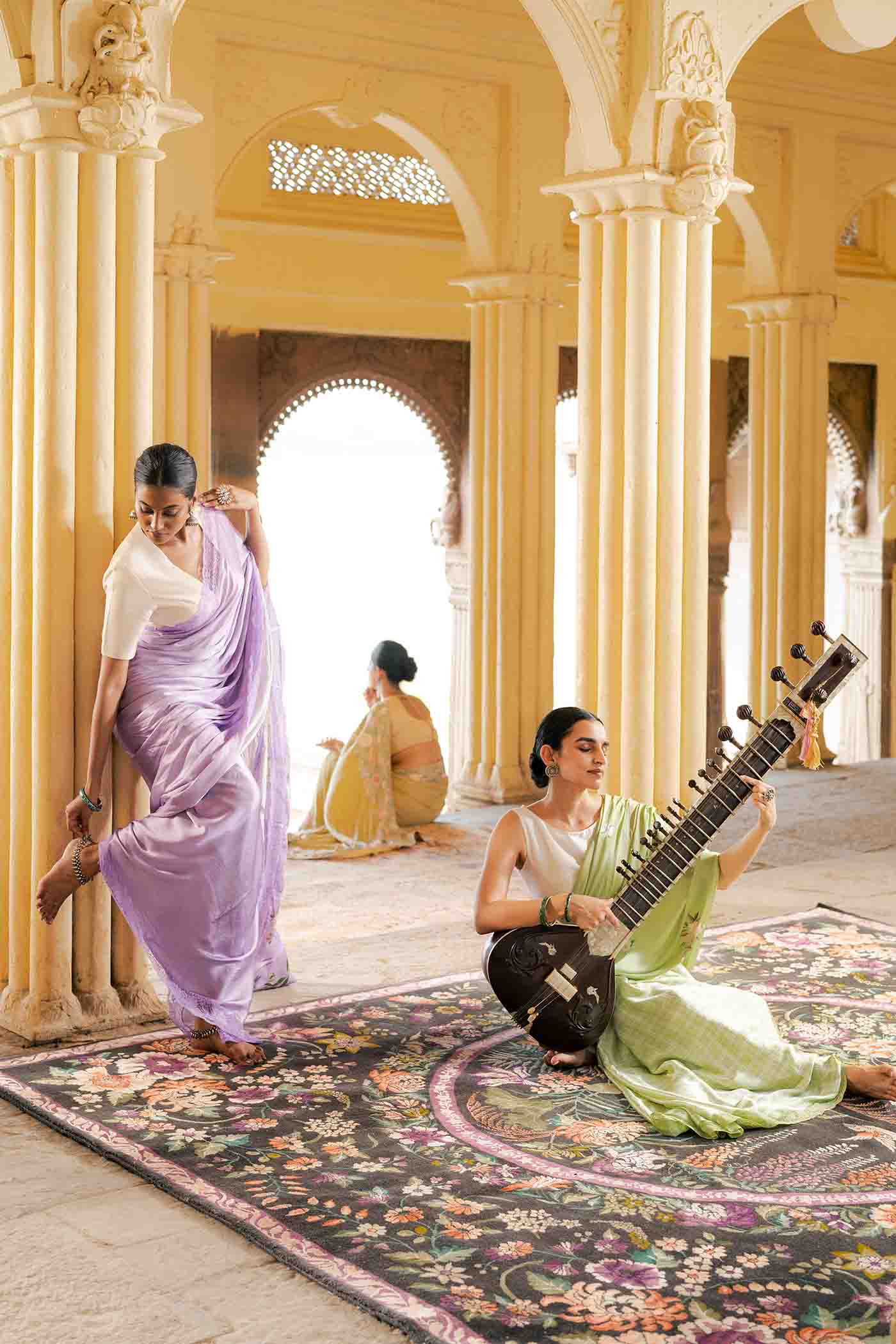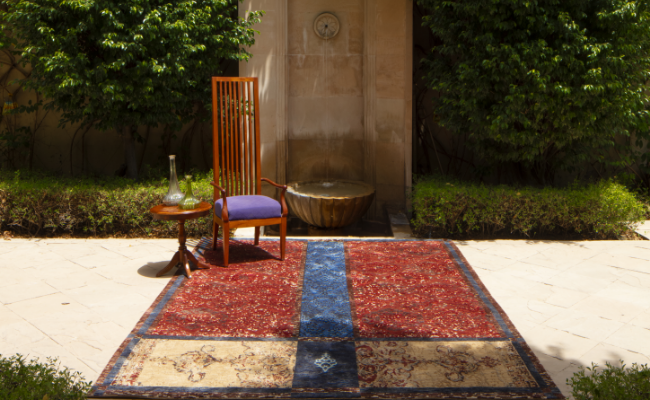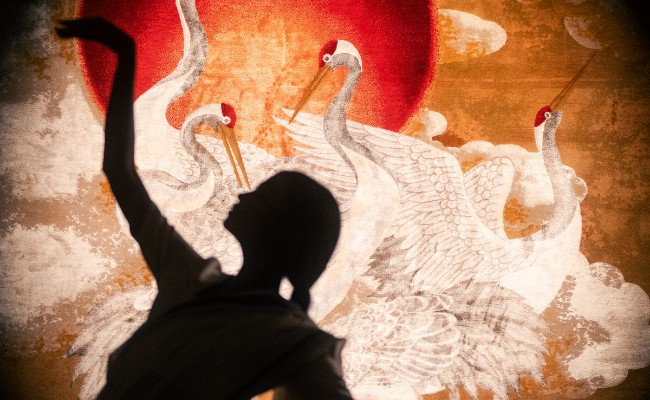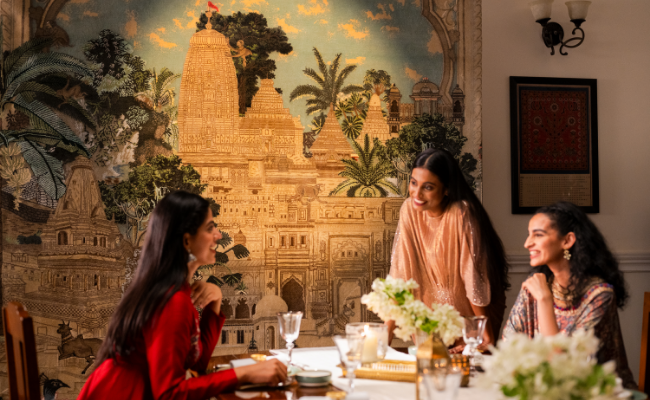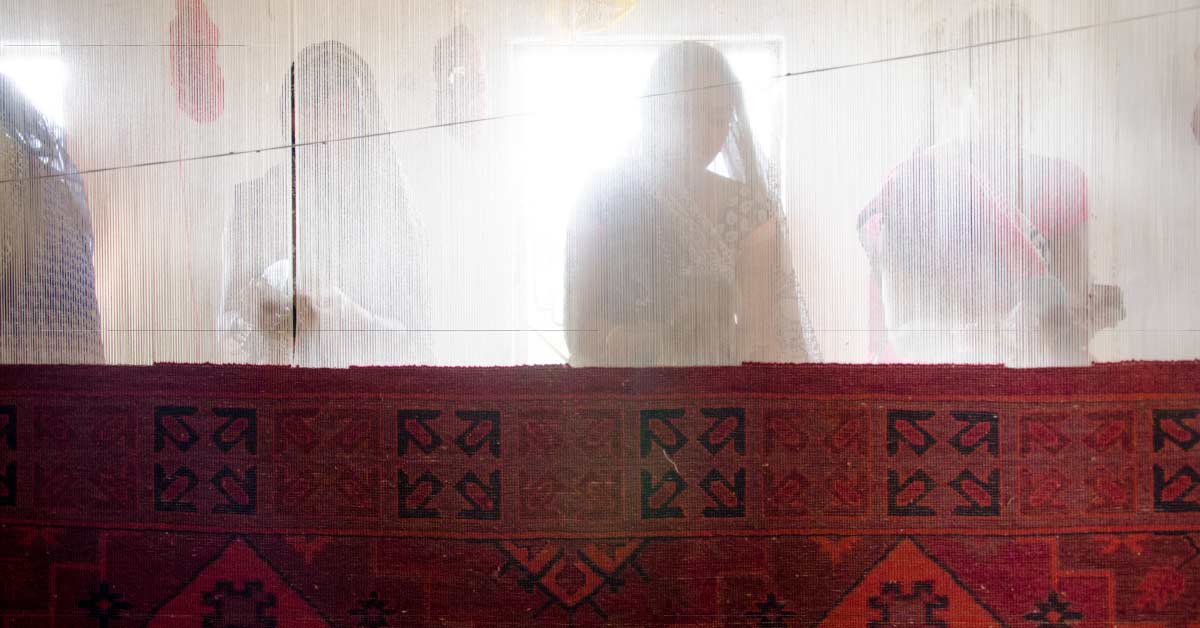
Freedom Woven in Every Thread: Celebrating Independence Day with Our Weavers
Long before the tricolor became the symbol of independent India, our nation’s spirit of freedom was stitched, painted, carved, and woven into countless works of art. In the pre-independence era, art was not just a way to earn a living; it was a language of resistance, unity, and cultural pride. From the khadi movement, which turned handspun cotton into a political statement, to the intricately painted scrolls that shared tales of valor and identity, creativity awakened consciousness. Every loom, chisel, and brush became a quiet but powerful weapon in the fight against colonial rule.
Artisans across India infused their work with motifs inspired by folklore, mythology, and patriotic symbols. These served as reminders of who we were as a people and what we stood for. Creating by hand became an act of defiance. Choosing local, handmade goods over imported, mass-produced items was about more than quality-it was about reclaiming economic freedom. In villages and towns, the artisan’s workshop became a place of storytelling, where traditions were passed down, and dreams of a free nation blossomed.

These artistic expressions did more than preserve culture-they inspired collective strength. When voices were silenced, the threads of handwoven fabric, the rhythmic beat of a potter’s wheel, or the delicate strokes of a painter’s brush spoke volumes. India’s craft heritage became an unspoken declaration: We will not be erased.
Today, more than 75 years later, that spirit still thrives-not as an act of resistance but as a means of preservation and pride. You can see this in the hands of our artisans, whose skills keep the essence of India alive in a fast-changing world.
India’s Artisans – Custodians of Freedom’s Legacy
Modern India features extraordinary contrasts, such as bullet trains alongside centuries-old temples, and skyscrapers next to bustling bazaars. Yet, amidst this rapid urbanization, artisans remain the quiet guardians of our heritage. They do more than create beautiful objects; they protect the cultural memory of a civilization that has thrived for thousands of years. Every hand-knotted carpet, hand-painted design, and hand-carved piece of furniture connects our past to the present.
However, for many artisans, this journey has been difficult. The rise of machine-made products, low wages, and a declining appreciation for handmade items have threatened not only livelihoods but also the continuity of age-old traditions. This is where the role of conscious brands becomes essential-not just as supporters of art, but as partners in empowerment.
Obeetee – Weaving Empowerment into Every Carpet
For Obeetee Carpets, the craft of weaving is more than just business-it’s a responsibility. As one of India’s most respected and oldest handwoven carpet manufacturers, Obeetee has spent over a century working alongside artisan communities, ensuring that traditional skills remain relevant and rewarding today.
Empowerment Through Employment
Obeetee collaborates directly with over 2,500 weavers across India, many of whom are second or third-generation artisans. By providing fair wages, safe working conditions, and consistent orders, the brand helps artisans not only survive but also thrive. Each rug is the result of months of labor and generations of knowledge-knowledge that is now being passed on to younger artisans, keeping the craft alive.
Women at the Loom
In rural India, women are often the most skilled yet under-recognized contributors to craft. Obeetee actively encourages and trains women to become independent weavers, giving them financial freedom and a voice in household and community decisions. The company’s efforts have helped hundreds of women transition from unpaid helpers to respected craftswomen.
Sustainable Craft, Sustainable Planet
In the spirit of the Swadeshi movement’s call for self-reliance, Obeetee promotes sustainability. The brand uses natural fibers like wool and cotton, eco-friendly dyes, and recycling practices that cut down on waste. This not only protects the environment but also fits a larger vision, creating rugs that are good for the home and the planet.
Skill Development and Innovation
Recognizing that tradition must evolve to endure, Obeetee invests in design workshops and skill development programs. These initiatives support artisans in adapting their methods to modern tastes without losing the essence of their heritage. This balance of heritage and innovation ensures that the craft remains relevant in homes around the world.
A Living Tribute to Independence
Every rug that leaves an Obeetee loom bears more than just patterns and colors-it carries a story. A story of a weaver in Mirzapur who learned the art from her father and is now teaching her daughter. A story of a village that has achieved economic stability because its craft is valued globally. A story of India’s freedom, not only from colonial rule but also from the invisibility that artisans once faced.
This Independence Day, as we celebrate the nation’s political freedom, we are reminded of the other freedoms worth preserving: the freedom to create, the freedom to sustain one’s heritage, and the freedom to pass it on to future generations. Obeetee’s work with artisans ensures that this legacy of creativity, born from resistance, remains vibrant, relevant, and deeply Indian.
True freedom is not just about the right to speak or vote-it’s also about the right to hold onto one’s identity, craft, and way of life. And in every thread and knot, India’s artisans continue to weave that freedom-thread by thread.


